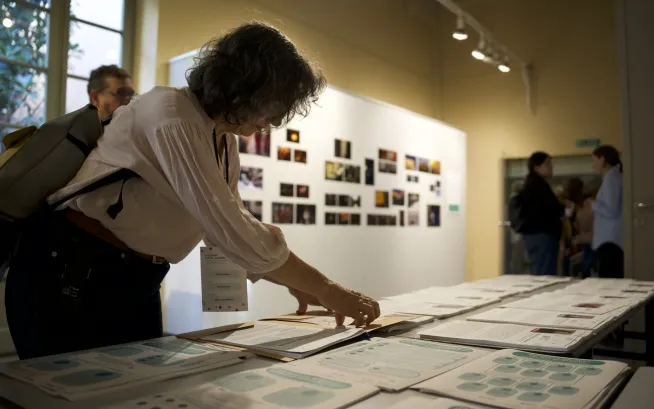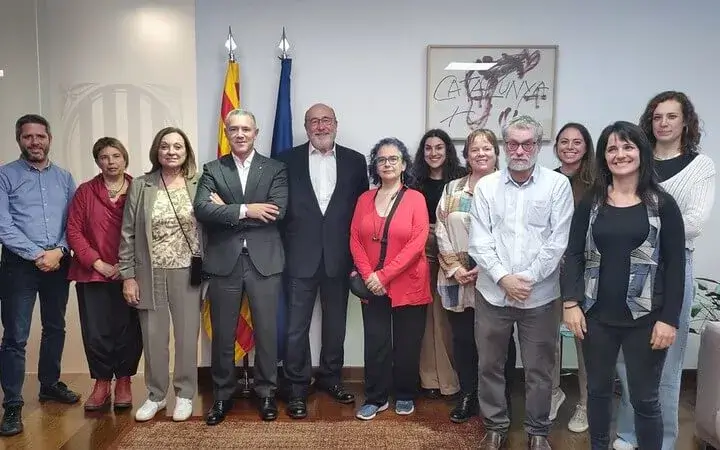This forum, organized by the Reds association, has brought together more than 100 organizations, local institutions and human rights defenders from around the world.
The second edition of the Global Local Forum, which has the support of CIDEU and the Catalan Development Cooperation Agency of the Generalitat (ACCD), took place last October 19 and 20 at the Pati Llimona Civic Center in Barcelona . This year's edition has dealt with co-responsibility and local political influence in the international protection of human rights.
The organization highlights the large number of attendees which shows that, faced with a context where serious violations of human rights are being committed everywhere, there is a citizenry and a local community that is concerned and eager to rethink and establish new ways to protect and defend them.
The forum is an innovative space in that it promotes the idea that from the local level, political advocacy should be done at the international level. Beyond cooperation between states, today there is a need for local communities to be connected and cooperate for the protection of human and environmental rights for all. From this point of view, Reds works to strengthen the mechanisms of Catalan local governments and, through joint work, seeks to innovate in actions of local influence for the international defense of human rights.
To do this, Reds puts two essential concepts on the table: co-responsibility and political influence. Accountability because it is not a one-way task, it is not an aid, it is the shared responsibility we have as humanity to protect human rights and act where these are being violated. Political impact because the affected communities reiterate that through visibility actions, complaints and interaction with their institutions, it has been possible to change the course of many struggles.
During these days, it was possible to verify that more and more people believe that from their local institutions and organizations they have the obligation to protect the human rights of other places. However, it has become clear that it is not an easy task: you have to be creative, think outside the box, in order to make an impact in the face of processes that involve conflict against States, multinationals and extractive mega-projects.
Francesca Nugnes and Vicente Vailles from International Brigades for Peace ( PBI) Colombia, have been in charge of revitalizing the space, contributing their experience of more than twenty years in accompanying defenders. The forum has had spaces for collective construction through work tables that have made it possible to bring together the different concerns of defenders, organizations and local governments and in this way establish and innovate coordinated advocacy actions.
The forum has had the participation of defenders of human and environmental rights from different countries in Latin America. Main importance has been given to their participation because, as reiterated by Natàlia Biffi, advocacy coordinator of Reds, "advocates are the ones who show us the way, the ones who tell us what to do, because they are the who are on the front line, putting their bodies on the line, to defend human rights which are everyone's rights".
Coordinated and networked work has been one of the main points of the event. The participation of different municipal networks, such as Ciutats Defensores or Herri Babesarea, committed to the protection of human rights, as well as examples of solidarity networks such as the Catalan Coordinator of Solidarity with the Saharawi People (CCAPS) or the European Network of Solidarity, is highlighted with the Peace Community of San José de Apartadó. Their interventions have made it clear that coordinated and networked work is essential for the defense of Human Rights. Reds has carried out a mapping of networks of municipalities that exist in Europe which are a good example of this coordination.
Finally, we have relied on the experience of different city councils in Catalonia, Spain, Italy and Belgium which, within their areas of cooperation, have incorporated the perspective of human rights and have established mechanisms to be able to exert political influence as an essential part of their cooperation . This means changing the perspective of cooperation, from a unilateral to a two-way action. As the indigenous defender Dora Muñoz explains "it's not helping, it's joining the defense of the territory, the defense of life".
The forum has been responsible for putting an end to the 'Our rights, everyone's rights' campaign , whose main objective is to invite Catalan local governments to, in these new legislatures, place at the center of their actions cooperation the international protection of human rights.







Add new comment